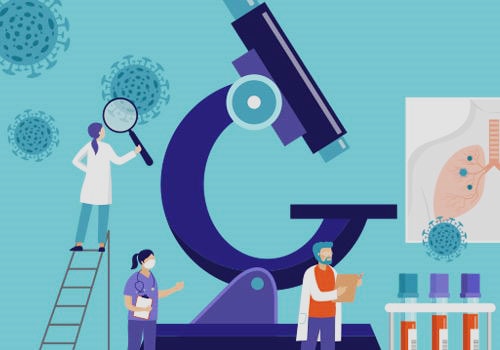The SARS-CoV-2 virus outbreak is a global pandemic, with millions of individuals around the world affected and communities worldwide disrupted. Understanding how the adaptive immune response works in SARS-CoV-2 infection could be one step forward on the path to developing vaccines.
In the study, “Detection of SARS-CoV-2-specific humoral and cellular immunity in COVID-19 convalescent individuals,” researchers tested sera from COVID-19 patients who had recently become virus-free and were discharged from the hospital. Researchers detected SARS-CoV-2-specific humoral and cellular immune response – specifically they saw antibodies specific to the receptor-binding domain of the coronavirus spike protein (S-RBD) and found a correlation between neutralizing antibody titers and anti-S-RBD IgG. Researchers observed no such correlation with anti-nucleocapsid protein IgG. Researchers concluded that, “Anti-S-RBD IgG might be useful in analyzing serum neutralization capabilities in COVID-19 patients.”1
Furthermore, researchers noted that S-RBD seemed to induce broader immune cell responses. This observation suggests that S-RBD may be a promising target for SARS-CoV-2 vaccines, which could help individuals build humoral immunity or cellular immunity to this potentially deadly disease.
 English
English



